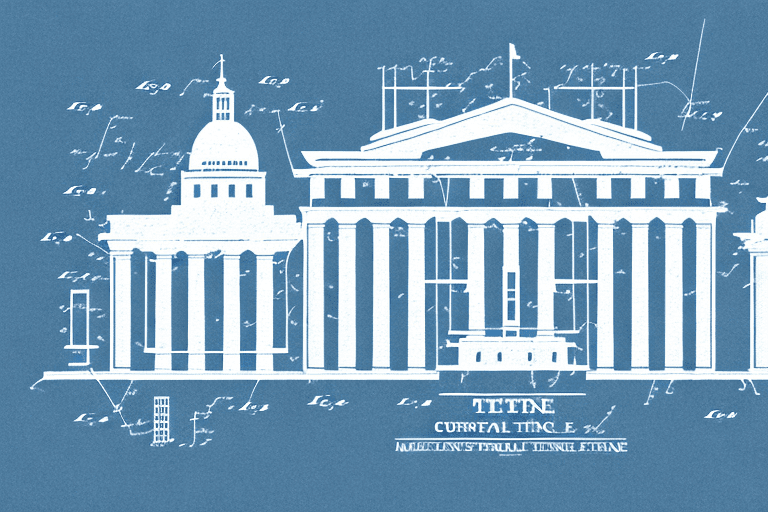In the world of intellectual property and legal qualifications, two exams that often cause confusion are the patent bar exam and the Multistate Professional Responsibility Exam (MAT). Understanding the differences between these two exams is crucial for individuals pursuing careers in intellectual property law. Let’s explore the basics of these exams, their purpose and importance, their structure and content, as well as eligibility and requirements for taking them. We will also provide some essential tips for preparing for each exam. Now, let’s dive in!
Understanding the Basics: Patent Bar Exam and MAT
What is the Patent Bar Exam?
The patent bar exam, officially known as the United States Patent and Trademark Office (USPTO) Registration Examination, is a comprehensive exam designed to determine an individual’s knowledge and understanding of patent law. Its primary purpose is to assess the qualifications of individuals seeking registration as patent attorneys or agents before the USPTO. In essence, passing the patent bar exam is a prerequisite for practicing patent prosecution before the USPTO.
The patent bar exam covers a wide range of topics related to patent law, including patentability requirements, patent prosecution procedures, and patent infringement. It tests applicants on their understanding of the different types of patents, such as utility patents, design patents, and plant patents. Additionally, the exam assesses an individual’s knowledge of patent search and examination techniques, as well as their ability to interpret and apply the relevant statutes and regulations.
Preparing for the patent bar exam requires extensive study and review of patent law principles and concepts. Many aspiring patent attorneys or agents enroll in specialized courses or utilize study materials specifically tailored for the exam. It is essential to have a solid understanding of patent law and the ability to apply that knowledge to real-world scenarios.
What is the MAT?
The Multistate Professional Responsibility Exam (MAT) is an ethics examination administered by the National Conference of Bar Examiners (NCBE) in most jurisdictions. Unlike the patent bar exam, the MAT does not directly test legal knowledge. Rather, it focuses on an individual’s understanding of professional responsibility and ethical standards in the legal profession.
The MAT assesses an individual’s knowledge of the rules and regulations governing the conduct of attorneys. It covers topics such as conflicts of interest, client confidentiality, attorney-client privilege, and the attorney’s duty to the court and the legal profession. The exam aims to ensure that individuals seeking admission to the bar have a strong understanding of their ethical obligations and are prepared to uphold the highest standards of professionalism in their legal practice.
Preparing for the MAT involves studying the rules of professional conduct and familiarizing oneself with the ethical considerations that attorneys face in their daily practice. It requires an understanding of the Model Rules of Professional Conduct, which serve as a guideline for attorneys’ ethical behavior. Additionally, the exam may include hypothetical scenarios that test an individual’s ability to identify and resolve ethical dilemmas.
Passing the MAT is a requirement for admission to the bar in many jurisdictions. It serves as a crucial step in the process of becoming a licensed attorney and demonstrates an individual’s commitment to maintaining ethical standards in their legal practice.
The Purpose and Importance of These Exams
The patent bar exam and the Multistate Professional Responsibility Examination (MPRE) are two crucial exams that individuals seeking a legal career must undertake. These exams not only test the knowledge and understanding of specific areas of the law but also play a significant role in shaping the future of aspiring attorneys.
Why Take the Patent Bar Exam?
The patent bar exam is a crucial step for individuals seeking to practice patent law. Passing this exam not only demonstrates a solid understanding of patent law but also paves the way for a rewarding career in patent prosecution. Successful completion of the patent bar exam leads to becoming a registered patent attorney or agent, allowing legal professionals to represent clients before the United States Patent and Trademark Office (USPTO) and handle patent-related matters.
Patent law is a specialized field that requires a deep understanding of technical concepts and legal principles. By passing the patent bar exam, individuals showcase their ability to navigate the complexities of patent law, interpret patent claims, and effectively communicate with inventors and examiners. This exam serves as a benchmark for the knowledge and skills necessary to provide competent and effective representation in patent-related matters.
Moreover, becoming a registered patent attorney or agent opens doors to a wide range of career opportunities. Patent attorneys can work in law firms, corporations, government agencies, or as solo practitioners. They can assist inventors in protecting their inventions, drafting patent applications, conducting patent searches, and providing legal advice on patent infringement and licensing issues. The patent bar exam, therefore, acts as a gateway to a dynamic and intellectually stimulating legal career.
The Significance of the MPRE
While the Multistate Professional Responsibility Examination (MPRE) is not directly related to patent law, it holds immense importance for individuals pursuing a legal career. Many jurisdictions require applicants to pass the MPRE as part of the bar admission process. The MPRE tests a candidate’s knowledge of ethical standards, professional conduct rules, and the responsibilities lawyers have to clients, colleagues, and the legal system as a whole.
Passing the MPRE indicates an individual’s commitment to upholding ethical standards in the practice of law. It ensures that aspiring attorneys have a solid foundation in legal ethics and professional responsibility, which are essential aspects of maintaining the integrity of the legal profession. By passing the MPRE, individuals demonstrate their understanding of the ethical obligations lawyers owe to their clients, including maintaining client confidentiality, avoiding conflicts of interest, and providing diligent and competent representation.
The MPRE also covers the rules governing the conduct of lawyers in their interactions with other lawyers, judges, and the legal system. It tests knowledge of the attorney-client relationship, the duty of candor to the court, and the prohibition against engaging in dishonest or fraudulent conduct. By passing the MPRE, individuals show their commitment to maintaining the highest standards of professionalism and integrity in their legal practice.
Furthermore, passing the MPRE is a prerequisite for admission to the bar in many jurisdictions. It ensures that attorneys entering the legal profession have a strong ethical foundation and are equipped to navigate the complex ethical dilemmas that may arise in their practice. The MPRE, therefore, plays a vital role in safeguarding the public’s trust in the legal profession and upholding the principles of justice and fairness.
Exam Structure and Content
The patent bar exam is a rigorous assessment that evaluates individuals’ knowledge and skills in the field of patent law. It consists of two main sections: the multiple-choice examination and the practical examination. Each section plays a crucial role in determining an applicant’s proficiency in patent law.
Breaking Down the Patent Bar Exam
The multiple-choice examination is designed to test applicants’ understanding of patent law and procedures. It presents a series of questions that assess their knowledge of various aspects of patent law, including patentability requirements, patent prosecution, and patent infringement. This section requires applicants to demonstrate their ability to analyze complex legal scenarios and apply relevant patent laws and regulations.
On the other hand, the practical examination evaluates applicants’ ability to draft and prosecute patent applications. This section assesses their skills in preparing patent claims, responding to office actions, and conducting legal research to support their arguments. It requires applicants to showcase their expertise in patent drafting, as well as their understanding of the intricacies involved in the patent prosecution process.
Both sections of the patent bar exam demand extensive preparation and a comprehensive understanding of patent law. Prospective candidates must invest significant time in studying and reviewing patent statutes, case law, and the rules and procedures of the United States Patent and Trademark Office (USPTO). Additionally, they should familiarize themselves with the Manual of Patent Examining Procedure (MPEP), which serves as a valuable resource for navigating the complexities of patent law.
Understanding the MAT Structure
In addition to the patent bar exam, individuals seeking to become patent practitioners must also pass the Multistate Professional Responsibility Examination (MPRE) and the Registration Examination for Patent Attorneys and Agents (commonly known as the “patent bar”). The MPRE is administered by the National Conference of Bar Examiners and focuses on legal ethics and professional responsibility.
The MPRE covers various topics that are crucial for maintaining ethical standards in the legal profession. These topics include conflicts of interest, client confidentiality, lawyer advertising, and the attorney-client relationship. By assessing applicants’ knowledge and understanding of these ethical principles, the MPRE ensures that future patent practitioners uphold the highest standards of professional conduct.
The MPRE is typically divided into multiple sections, each focusing on a different aspect of professional responsibility. This division allows for a comprehensive evaluation of an applicant’s understanding of legal ethics and their ability to apply ethical principles in various scenarios. It ensures that individuals who pass the MPRE possess the necessary skills and knowledge to navigate the complex ethical landscape of the legal profession.
Successful completion of the MPRE is a prerequisite for taking the patent bar exam. By incorporating the MPRE into the registration process, the United States Patent and Trademark Office (USPTO) emphasizes the importance of ethical conduct in the practice of patent law. This requirement ensures that patent practitioners not only possess the technical expertise required for the job but also adhere to the highest ethical standards, ultimately promoting trust and integrity in the patent system.
Eligibility and Requirements
Who Can Take the Patent Bar Exam?
To be eligible to take the patent bar exam, individuals must possess a technical degree in a field recognized by the USPTO. This includes degrees in engineering, computer science, chemistry, biology, and other related disciplines. Additionally, individuals with sufficient coursework or experience in these fields may also be eligible. The USPTO has specific requirements regarding the credits and qualifications needed to sit for the exam.
MAT Eligibility Criteria
The eligibility criteria for the MAT exam vary by jurisdiction. Most jurisdictions require candidates to have completed or be in the process of completing a Juris Doctor (JD) degree from an American Bar Association (ABA)-accredited law school. Some jurisdictions also accept foreign law degrees for eligibility. It is essential for individuals to research the requirements of the specific jurisdiction in which they plan to practice law.
Preparing for the Exams
Study Tips for the Patent Bar Exam
Preparing for the patent bar exam requires a dedicated study plan and comprehensive understanding of patent law. Consider utilizing study materials specifically tailored for the exam, such as review courses and practice exams. It is also beneficial to join study groups or seek guidance from experienced patent attorneys or agents. Additionally, staying up to date with the latest developments in patent law is essential for success.
How to Prepare for the MAT
Preparing for the MAT involves familiarizing oneself with the rules of professional conduct, ethics opinions, and case law related to legal ethics. Reviewing various study guides and practice questions can help candidates become more familiar with the types of issues typically tested in the exam. Additionally, engaging in discussions on legal ethics and professional responsibility with classmates and professors can provide valuable insights.
In conclusion, although both the patent bar exam and the MAT are examinations for legal professionals, they serve different purposes and assess distinct areas of expertise. The patent bar exam focuses on an individual’s knowledge of patent law and is crucial for practicing patent prosecution before the USPTO. On the other hand, the MAT evaluates a candidate’s understanding of ethical responsibilities in the legal profession. Understanding the nuances and requirements of each exam is essential for individuals pursuing careers in intellectual property law or general legal practice. With thorough preparation and dedication, aspiring attorneys can excel in these exams and embark on successful careers in their respective fields.






